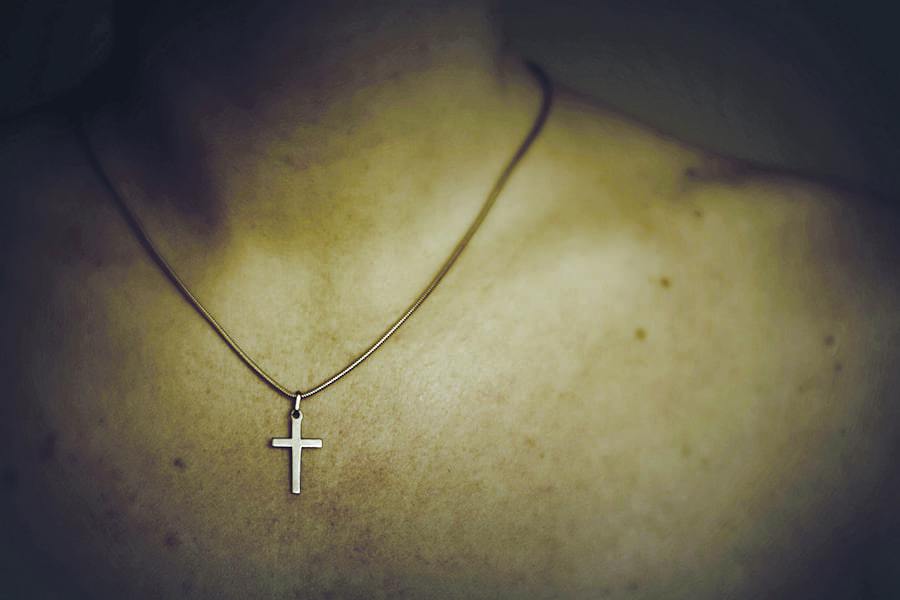Memoir of a Christian

author: harrison otis | contributor

Credit: Frank via Flickr
It is not difficult for a community that calls itself Christian to act as though it were anything but.
As a homeschooler who graduated from a small Christian college in America, I’ve lived most of my life with and around Christians. This fact has often frustrated me. The “Christian bubble,” like any close community, can become stifling, and I have been quick to judge my fellow Christians when they fail to show graciousness to those who disagree with them. I know people who come from backgrounds more conservative than mine who have been wounded by cruelty, intolerance, or sexism disguised as religion. It is not difficult for a community that calls itself Christian to act as though it were anything but.
Yet, even so, the Christian Church I have come to know is not primarily a place of fanatic hypocrisy. It is there, of course, and where communities suffer, and people are hurt. But in general, I know the Church as an oddball collection of people of all nations, races, personalities, professions, and backgrounds, held together by a common faith in Jesus, an everyday gratitude for his salvation, and a joint determination to follow him. There is evil and pain here, as the jagged edges of our broken selves rub against each other. But I have also seen great goodness, love, patience, unselfishness, joy, and kindness, as God slowly repairs us into his image and our rightful selves.
What is meant by this last phrase goes all the way back to the book of Genesis. Evil is, most fundamentally, a rejection of God’s goodness and authority—and because God is our Creator, rejecting him ultimately means denying ourselves. God creates the first humans like him (“in his own image”) and calls them “very good.” When those same people disobey him two chapters later, they are distorting their image and unraveling the “very goodness” of their creation. When we do evil today, we distance ourselves farther and farther from that standard of full, and wholly good, personhood. And crazily enough, we tend to like it. This is what Jesus has come to save us from: not from what makes us human but from what we think makes us human, the poison we cling to as medicine.
Evil is serious. When people complain that the God of the Bible is unduly harsh or cruel, I think they underestimate just how dangerous evil is. This is something we do all the time. We justify ourselves as rapidly as we breathe; we excuse emotions, thoughts, attitudes, and actions because we want to preserve the sense of our normalcy. We’re not murderers, and we’re not saints. We’re okay somewhere in the middle. But evil is no less severe because it is common. Evil, all evil, any evil is the active undoing of all that is good, all that is worthwhile, all that is valuable. It deserves nothing but extinction. When God judges evil—not the judgment of a diva but the judgment of a judge – he is not vindictive or cruel. He is just.
Justice is an essential part of goodness, and I think we tend to underestimate this, too. We often believe goodness a bore and perfection an uptight goody-two-shoes. But everything in life that’s worth something is good. Why do we love our favorite food? Because it’s good. Why do we listen to our favorite musicians? Because they’re good. Why do we vote for our ideal candidate? Because we think she will do a good job. Imagine that nugget of goodness you see glinting in a thousand places around you extracted, combined, and presented with no defects whatever: pure goodness, utterly delightful and utterly valuable. This is the opposite idea of annoying: it’s what makes everything worth doing, worth being. Because of this, pure goodness is ruthlessly just, since nothing that’s not good is worth anything. This poses a problem for us creatures of imperfection and selfishness. We know we can’t live with pure goodness, and we know we can’t live without it. So most of the time we choose not to think about it.
When I ask myself why I bother believing in all this Christianity stuff, I end up here. I know myself well enough to know that I am not wholly good, and I can imagine just enough of God’s goodness to know that beauty burns. Goodness is a fire, not a pillow. Were we to come face to face with complete and utter goodness, we would fear for our lives. And yet Jesus has come, and died, and risen again so that I, a person rotted through with evil, can not only escape the judgment of a perfectly good God but can also be made good myself: restored, ultimately, to the very goodness of that first creation. I am not the only evil one, that is, so is the whole oddball collection of us who believe in Him, slowly growing toward God’s goodness together.
There’s more I could say, but for me, this is what the Church is about; this is the good news we have to proclaim; this is my source of joy.






